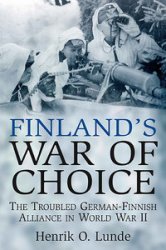With the end of superpower rivalry and the collapse
of the Soviet Union in 1991, the attention of
the world shifted to the new post–Cold War era. For
many observers, the prognosis was excellent. U.S. President
George H.W. Bush looked forward to a new era of peace and international
cooperation, while pundits predicted the advent of a
new “American century,” marked by the victory of liberal democratic
values and free enterprise capitalism. Some, however, held
a more somber view. In a speech at Westminster College in Fulton,
Missouri (the site of Winston Churchill’s famous Iron Curtain
speech in 1946), past Soviet president Mikhail Gorbachev
pointed to ominous clouds on the horizon. One danger, he
warned, was that of an “exaggerated nationalism,” the product of
centrifugal forces that had been frozen by the Cold War. Another
was the growing inequality in the distribution of wealth between
rich and poor nations.
With the passage of time, it seems fair to say that Gorbachev
had the more accurate vision of the immediate future. Although
superpower conflict based on a fragile balance of nuclear
terror had come to an end, sources of conflict still
abound throughout the world, and the gap between rich and
poor nations has grown ever wider. Strong forces—rapid
transportation, mass entertainment, the Internet—are in
the process of creating a single global civilization. But
equally powerful impulses, sometimes armed with modern
technology, violently resist the new global society and assert
the primacy of traditional values and identities. In the face
of such pressures, international organizations appear paralyzed
by deep divisions over potential solutions while, as recent
events in the Middle East demonstrate, the New World
Order is still characterized primarily by the use or threat of
force to achieve national goals.
Howcan nations and peoples bring an end to this spiraling
cycle of violence in a world beset by bitter national, ethnic,
and religious rivalries? For Mikhail Gorbachev, it is essential
to develop new ways of thinking: to reject the traditional reliance
on force in world politics, to increase mutual understanding
and communication, and “to base international politics
on moral and ethical norms that are common to all
mankind.” Vaclav Havel, the onetime playwright who became
the first president of a post – ColdWar Czechoslovakia,
agreed. In a speech before the U.S. Houses of Congress in
1990, he called for a new human consciousness that would
transcend family, community, and national interests in a
broader commitment to the “family of man.” In an address at
Harvard University five years later, he noted that the clashing
interests of globalism and tradition could only be transcended
by a new spirit of tolerance, and by recognizing the
reality of a multicultural and multipolar world civilization.
As both statesman were quick to concede, these were
revolutionary goals and would not be easy to achieve. Yet
the alternative was unthinkable. Without a new sense of
human morality and responsibility, Havel warned the members
of Congress, “the catastrophe toward which this world
is headed—be it ecological, social, demographic or a general
breakdown of civilization—will be unavoidable.”
Sources: Speech by Mikhail Gorbachev at Fulton, Missouri, in the New
York Times, May 7, 1992; Mikhail Gorbachev, Perestroika (New York:
HarperCollins, 1997); Vaclav Havel, The Art of the Impossible: Politics as
Morality in Practice (New York: Fromm, 1998); Speech by Vaclav Havel to
the U. S. Congress, quoted in the Washington Post, February 22, 1990).
|
|
||||||||
|
Www.WorldHistory.Biz
Sundries
 Contact Contact
|
 
10-08-2015, 23:33
CONTEMPORARY CIVILIZATION AND ITS DISCONTENTS
  |
|||||||
 |
 |
 |
 |
|||||
|
||||||||

 World History
World History





